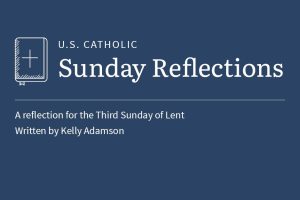Readings (Year C):
Isaiah 66:18 – 21
Psalms 117:1, 2
Heb 12:5 – 7, 11 – 13
Luke 13:22 – 30
Reflection: God’s salvation is free and inclusive, but not cheap
The question of inclusion and exclusion is a perennial human problem which has become important in recent times. The growing climate of nationalist populism, with such ideological goals as isolationism, nativism, anti-immigration, anti-Blackness, anti-Semitism, and related sentiments is a reality that has characterized many political movements today, especially in the West. Underlying all nationalist movements is the basic principle of inclusion of some, the “we” (those who belong), and the exclusion of “others” (those who do not have the right to belong).
In the first and third readings, we are confronted with the same question of inclusion and exclusion. However, unlike the nationalist political climate of our time, the readings speak about God’s eternal plan to include all people (especially those without rights) in the family of God’s redeemed people. The first reading from Isaiah envisions a time when all nations will share in God’s kingdom and have access to God’s saving grace. The text alludes to a future when the Israelites and the Gentiles will form one community, and all will participate in one worship of God. God will even select the Gentiles (those who were formally excluded from membership within God’s people) to become priests and Levites. In this reading, we see a picture of an inclusive and equal community of God’s people where nationalism and race distinction no longer hold sway. Here we see the free and inclusive nature of God’s gift of salvation.
The Gospel reading further buttresses the message of the first reading but goes beyond it. It stresses the free gift of membership into the community and God’s salvation. We hear that many people will come from the four corners of the world and “eat in the kingdom of God.” But Jesus also admonishes against any feeling of entitlement to the kingdom. In fact, he contrasts those who feel they have a right to God’s kingdom, and those who actually enter the kingdom. In this passage Jesus emphasizes that while salvation is gift of God, human response through obedience to God is required. This point is accentuated with the imagery of the narrow door. Here Jesus deploys the athletic or martial imagery: “strive,” or “fight” (ἀγωνίζομαι), a term usually used in the Hellenistic world to reference the exercise of virtue, underscores this human response. God’s gift of salvation is free but not cheap. The passage also speaks of the urgency to accept God’s invitation now since the narrow door will not remain indefinitely open.
In the reading from Hebrews, the author stresses the importance of discipline and obedience in the formation of God’s people. The heavenly race will not be an easy one. We are reminded of God’s discipline and training. God will train us how to walk through the narrow door proposed by Jesus. This training will be painful, but the goal is to guide us through the right path. These readings invite us to accept God’s training towards inclusivity and acceptance of “others” especially the socially excluded in our midst.















Add comment